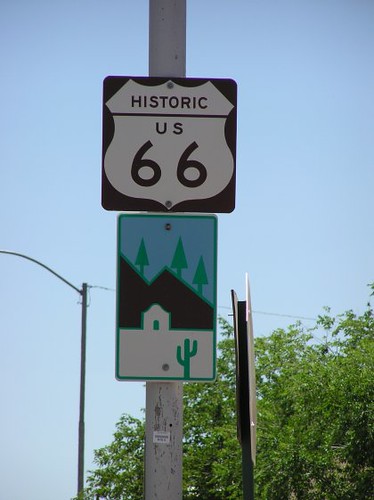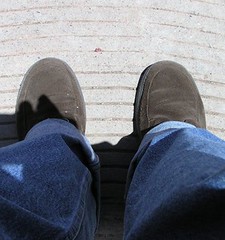Wretchard over at Belmont Club reminds us of
The Grave of the Hundred Dead and how the enemy is killing us in the war of ideas:
But if the US has been at pains to avoid the image of ruthlessness, the enemy by contrast has made a special effort to magnify his brutality by attacking mosques, beheading women, mutilating children, etc. often on camera. And the really disappointing thing it is that the intended intimidation works. If George Galloway's standard response to his critics is a lawsuit and radical Islam's first recourse is a fatwa then terror's first answer to insult is always the Grave of a Hundred Dead. Intimidation brings them respect from the very people who style themselves immune to intimidation. It is plain to the lowliest stringer from the most obscure tabloid that to insult America is cheap but to insult the local 'militants' very, very expensive. Kipling's cynical dictum is proven again and the lesson not forgotten.
Austin Bay is reporting from Iraq and gives us
his thoughts on the home front:
I find that this return visit to Iraq spurs thoughts of America– of American will to pursue victory. I don’t mean the will of US forces in the field. Wander around with a bunch of Marines for a half hour, spend fifteen minutes with Guardsmen from Idaho, and you will have no doubts about American military capabilities or the troops’ will to win. But our weakness is back home, on the couch, in front of the tv, on the cable squawk shows, on the editorial page of the New York Times, in the political gotcha games of Washington, DC. It seems America wants to get on with its wonderful Electra-Glide life, that September 10 sense of freedom and security, without finishing the job. The military is fighting, the Iraqi people are fighting, but where is the US political class? The Bush Administration has yet to ask the American people –correction, has yet to demand of the American people– the sustained, shared sacrifice it takes to win this long, intricate war of bullets, ballots, and bricks. Bullets go bang, and even CBS understands bullets. Ballots make an impression–in terms of this war’s battlespace, the January Iraqi elections were World War Two’s D-Day and the Battle of the Bulge combined. But the bricks– the building of Iraq, Afghanistan, and the other hard corners where this war is and will be fought– that’s a delicate and decades long challenge. Given the vicious, megalomanical enemy we face, five years, perhaps fifteen years from now occasional bullets and bombs will disrupt the political and economic building. This is the Bush Administration’s biggest strategic mistake– a failure to tap the reservoir of American willingness 9/11 produced.
Both posts are well worth a read. I do disagree with Bay about "perhaps." I think 50 years from now the occasional bullet or bomb will disrupt life in Iraq, just as the occasional bullet, bomb, or aircraft used as a missile has in the US in the last 50. Deep change in any culture is usually measured in generations, not years.
But democracy can survive internal violence. The US survived the Civil War and the assassinations of several presidents and other politicians, as well as riots and domestic terrorism. Throughout, the US has moved overall towards being a better, freer nation. Americans today are freer than we were during WWII. The Patriot Act doesn't come ANYWHERE close to turning back the freedoms we gained after WWII: it doesn't restore the government censorship of media that was common then, it doesn't re-institute anything like the relocation camps Japanese immigrants, their families, and their American descendants were forced into, it doesn't roll back the racial freedoms of blacks, hispanics, etc., etc., etc. The US today is a far better nation in terms of Good and Evil, it is a far freer nation, than the US of 1945. And the US of 1945, though flawed, was a Good nation.
So why even try, if it will take decades? Because violent conflict between the US and terrorist organizations was inevitable. It is the route the terrorists have chosen and pursued for decades, and there was no sign they were going to quit, even when we did everything "right." With eight years of Clintonian "getting along" with the world, of listening to our allies, of giving Saddam yet another chance, of pressuring Israel to give up land and make peace, the attacks against the US were getting more frequent and bloodier and the anti-American rhetoric around the world was increasing. The terrorists were going to carry out their war against the US regardless of what the US did. It was not a choice of war or peace, it was a choice of fighting or surrendering. Being nice doesn't keep the muggers away, and it wasn't going to keep the terrorists away.
But all of this is lost on most Americans today. Americans simply do not know history; the Left encourages us to forget, and the Right does not seem to care to remember. A German officer on the ship I took home asked me if it was worth 1,700 American lives to overthrow Saddam, and I asked him if it was worth more than 200,000 American lives to overthrow Hitler and Tojo. He said you cannot force peace and democracy on a nation at gunpoint, and I said it had worked in Germany and Japan. He said the Arabs were not ready for democracy, and I said they never would be under tyrants like Saddam. He said the US should listen to its allies like France, and I said we had no reason to listen to anyone who had been bought by our enemies. He said there were ways besides war to pressure Saddam, and I said not when your own allies were helping him under the table. He never answered any of my ripostes, but the next day, we had the same discussion over again.
The physical war against terrorism is going well for the Coalition, but the war of ideas, I fear, is slowly being lost. If the Allies' media had acted in WWII as they do now, the Third Reich would be running Europe today, and we wouldn't be worrying about China, we'd be worrying about the growing economic juggernaut of the Greater East Asia Co-Prosperity Sphere. I in no way want to see a return to government censorship of media reports, or the refusal to criticize a wartime government that characterized the media of the 1940's. Criticism can be helpful and even patriotic. But I do believe the American Left, including much of the media, has to decide whether the enemy is the Republican Party, which disagrees with them, or the terrorists, who want to destroy America.
So far, they seem to have picked the Republicans.###
Mug tip for the Austin Bay post to
Instapundit.


